Abstract
A learning situation in which the principal content of what is to be learned is not given but is independently discovered by the learner is often considered “discovery learning.” Recently, learning scientists have been able to make explicit some of the conditions under which such independent discovery is likely to occur (Andronis, 1983; Epstein, 1996; Johnson & Layng, 1992). One form of “discovery” can often be observed when skills learned under one set of conditions are recruited under new conditions to serve a new or different function—a process of “contingency adduction” (Andronis, Layng, & Goldiamond, 1997). The research reported here investigated the application of contingency adduction in a discovery learning context to establish sound-to-letter correspondence as part of an online reading/decoding program, Headsprout Early Reading. Beginning readers acquired novel letters/sounds correspondence with minimal presentations and few errors—often requiring only one presentation. This research suggests that instructional sequences may be designed to provide effective discovery learning activities to teach some phonics skills.
Full text
PDF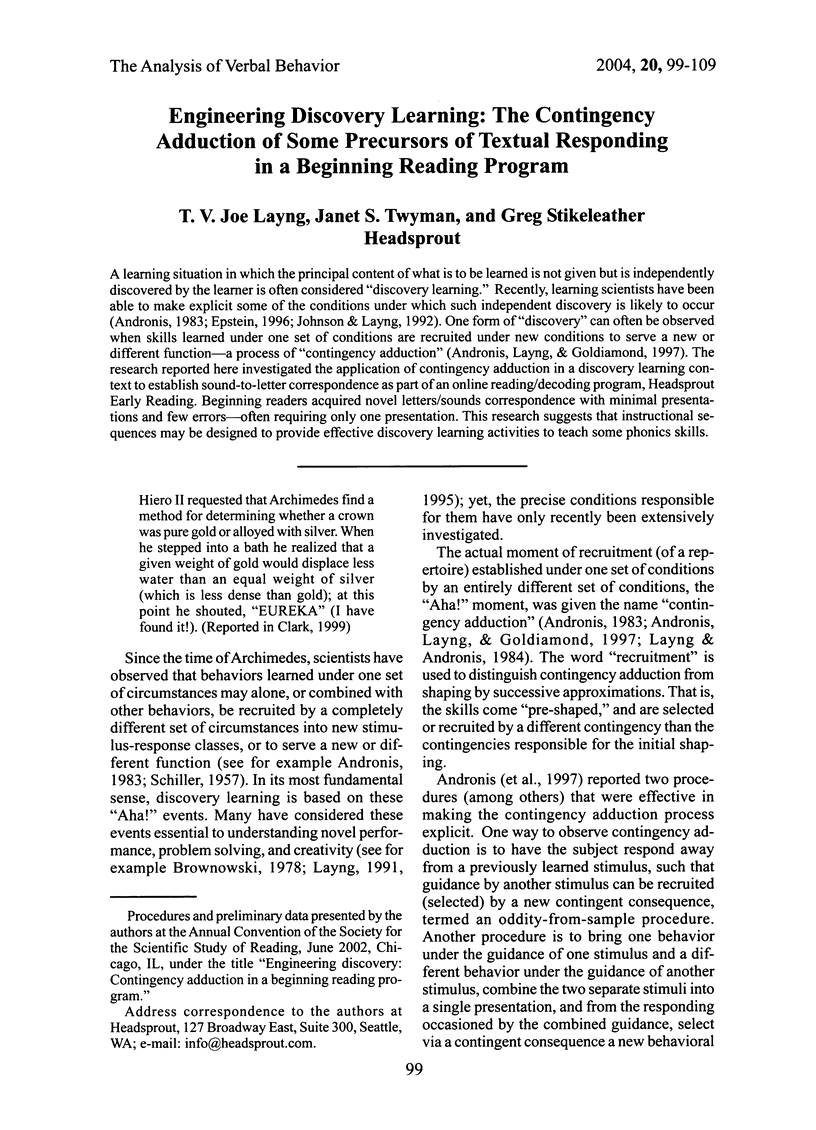
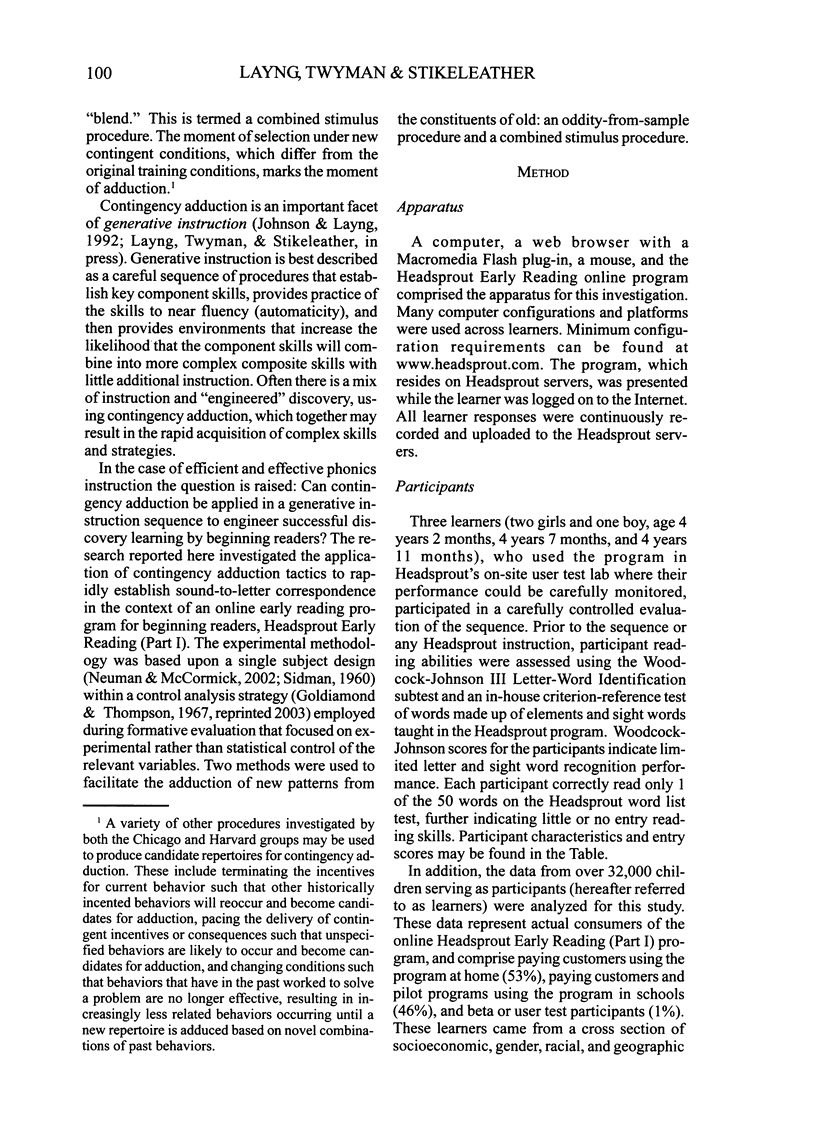
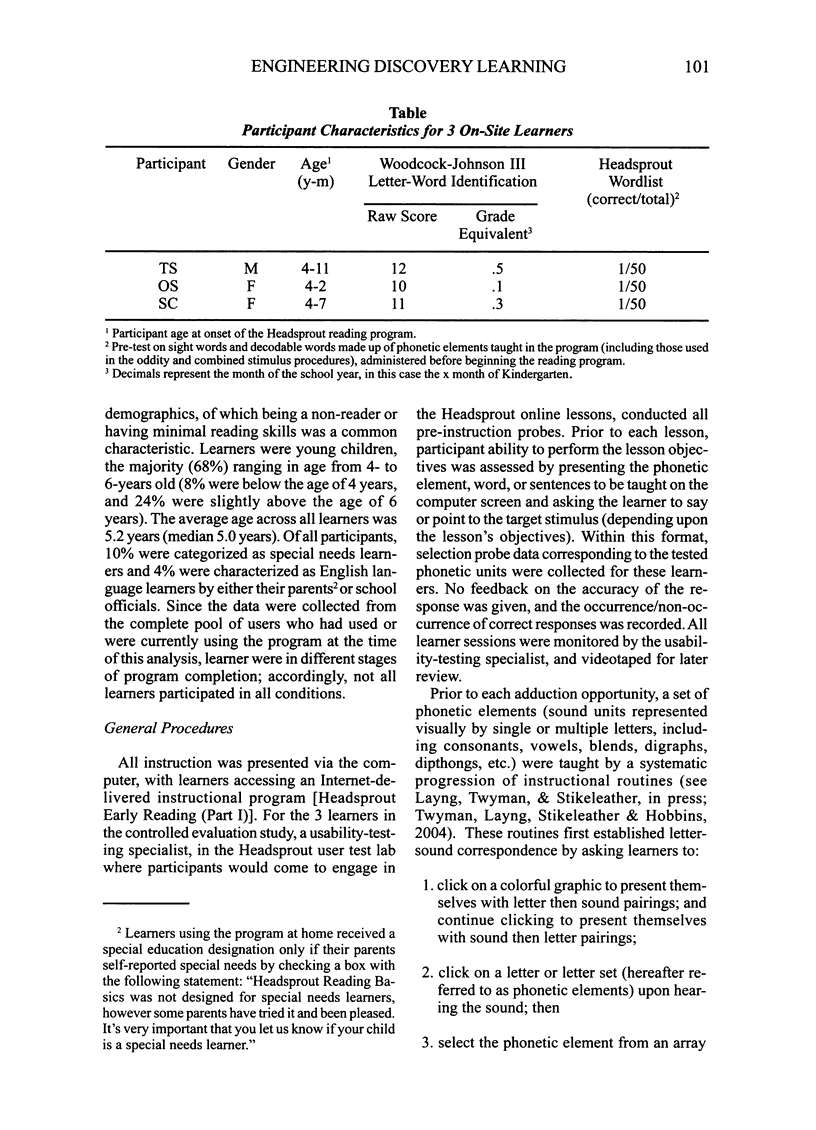
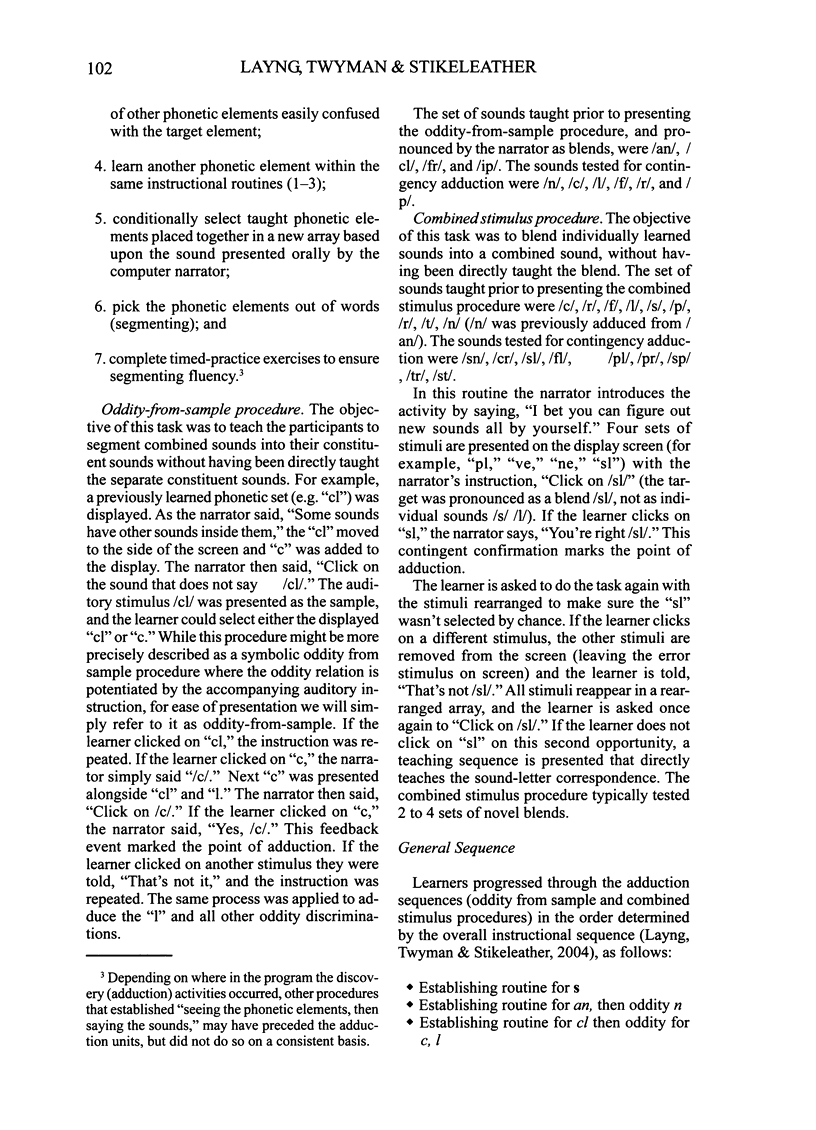
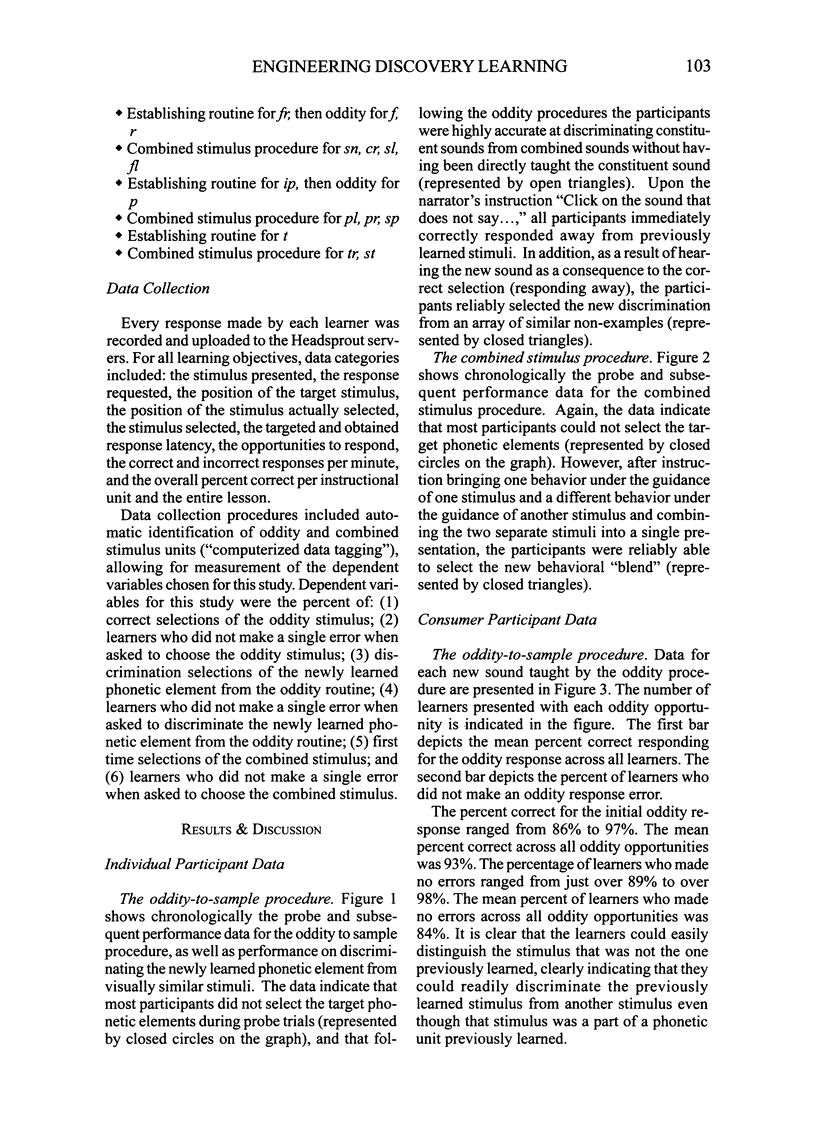
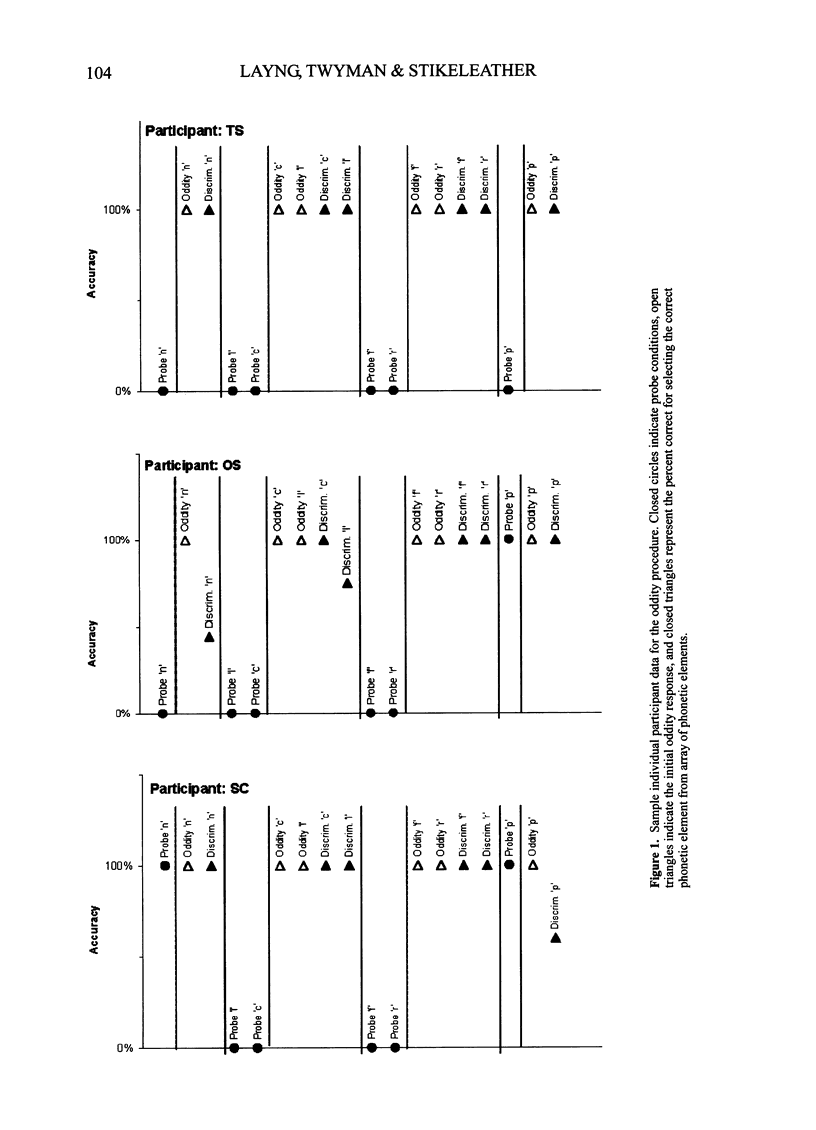
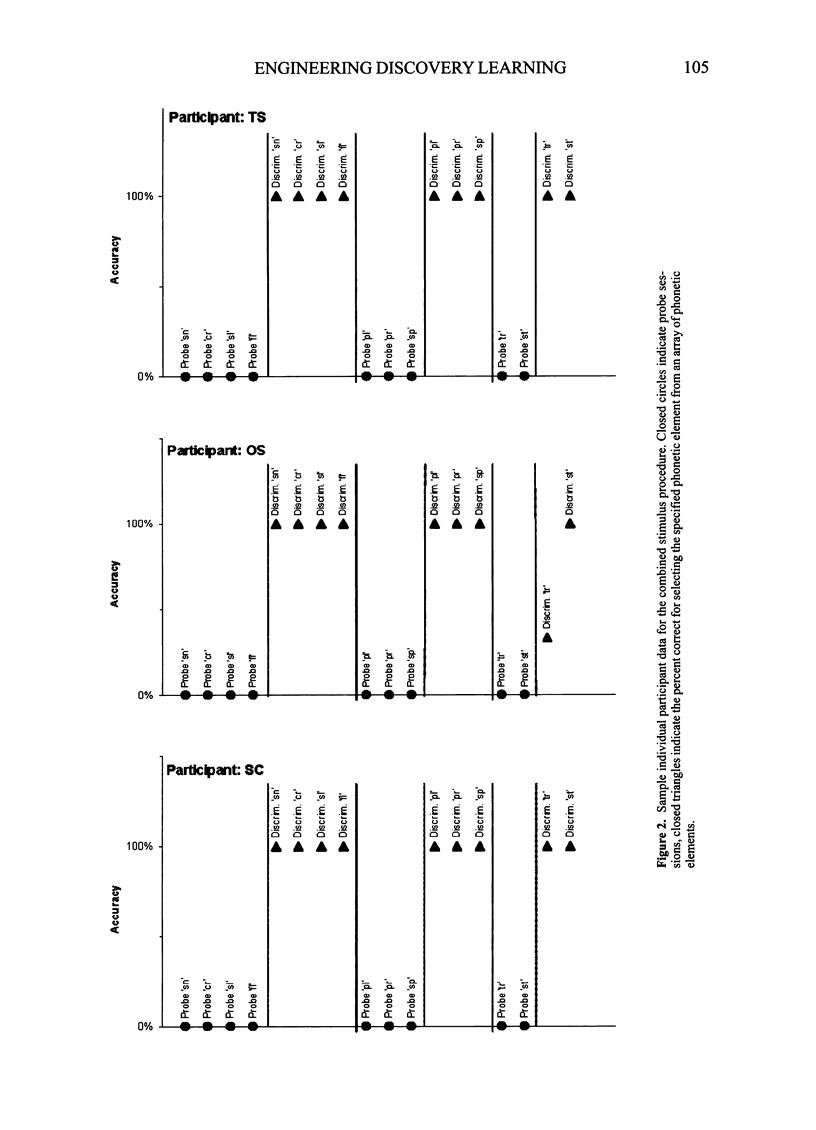
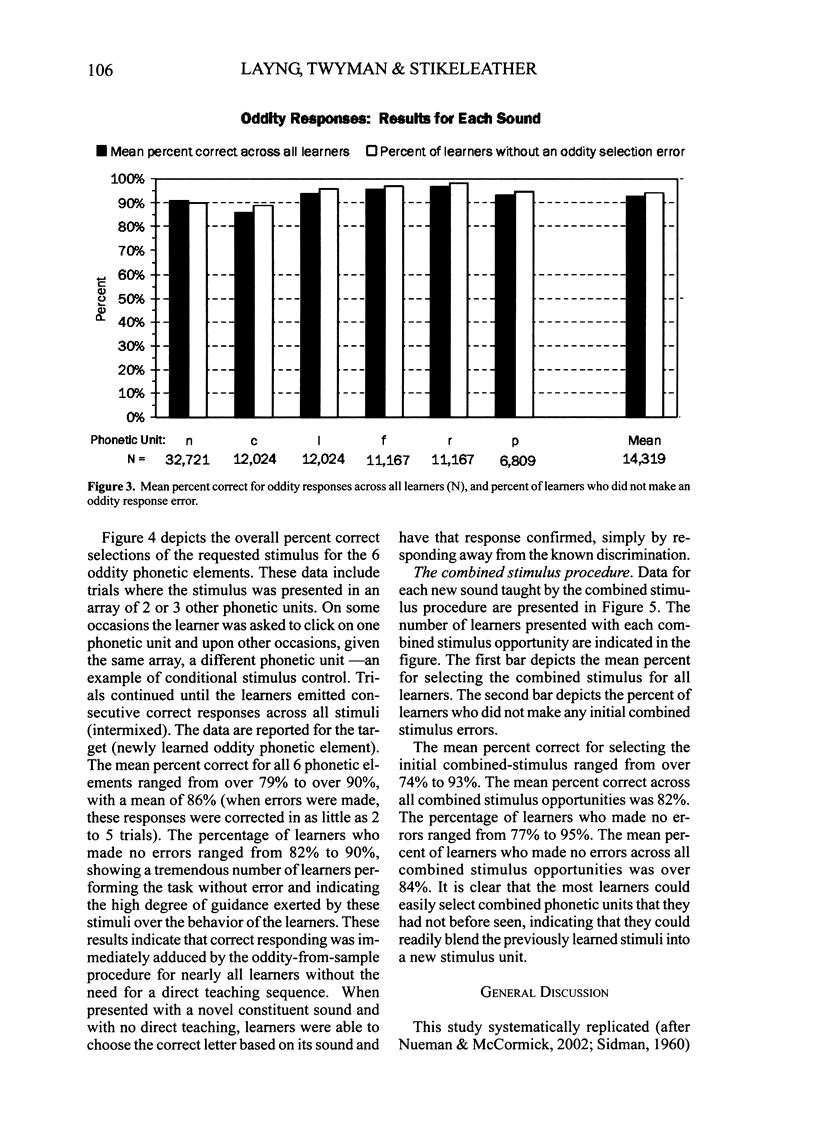
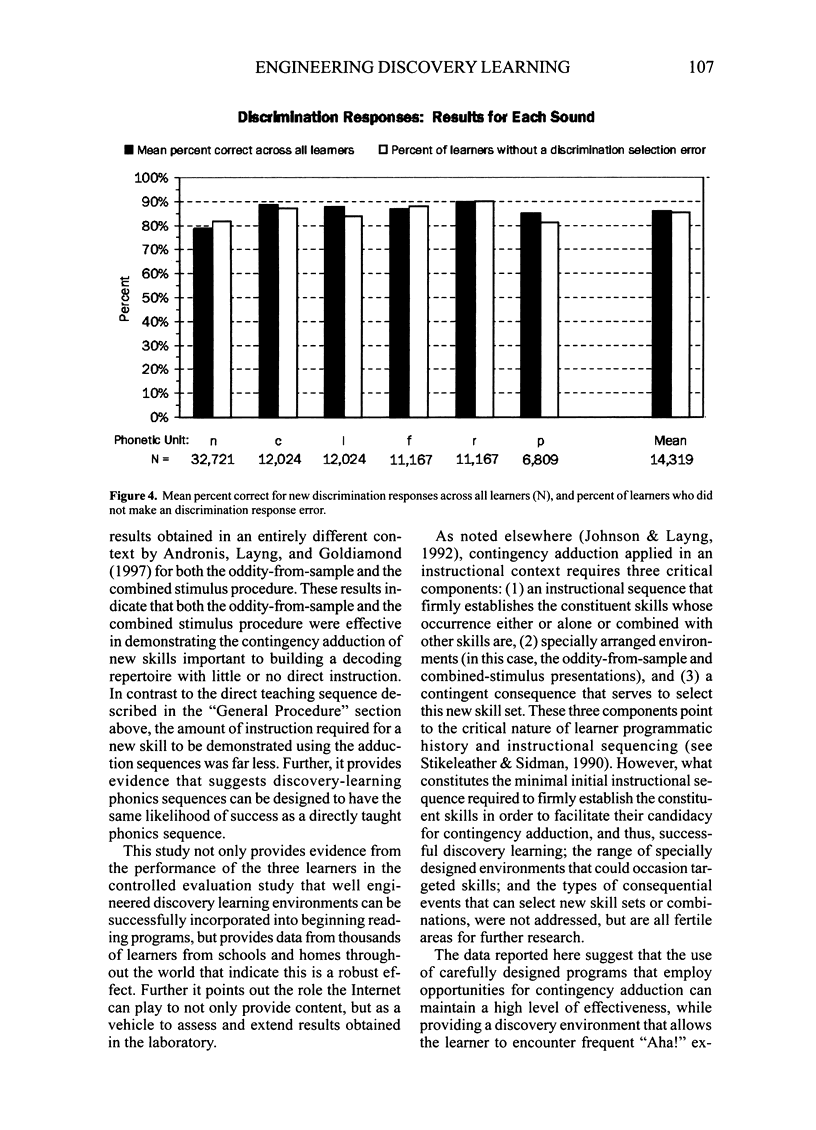
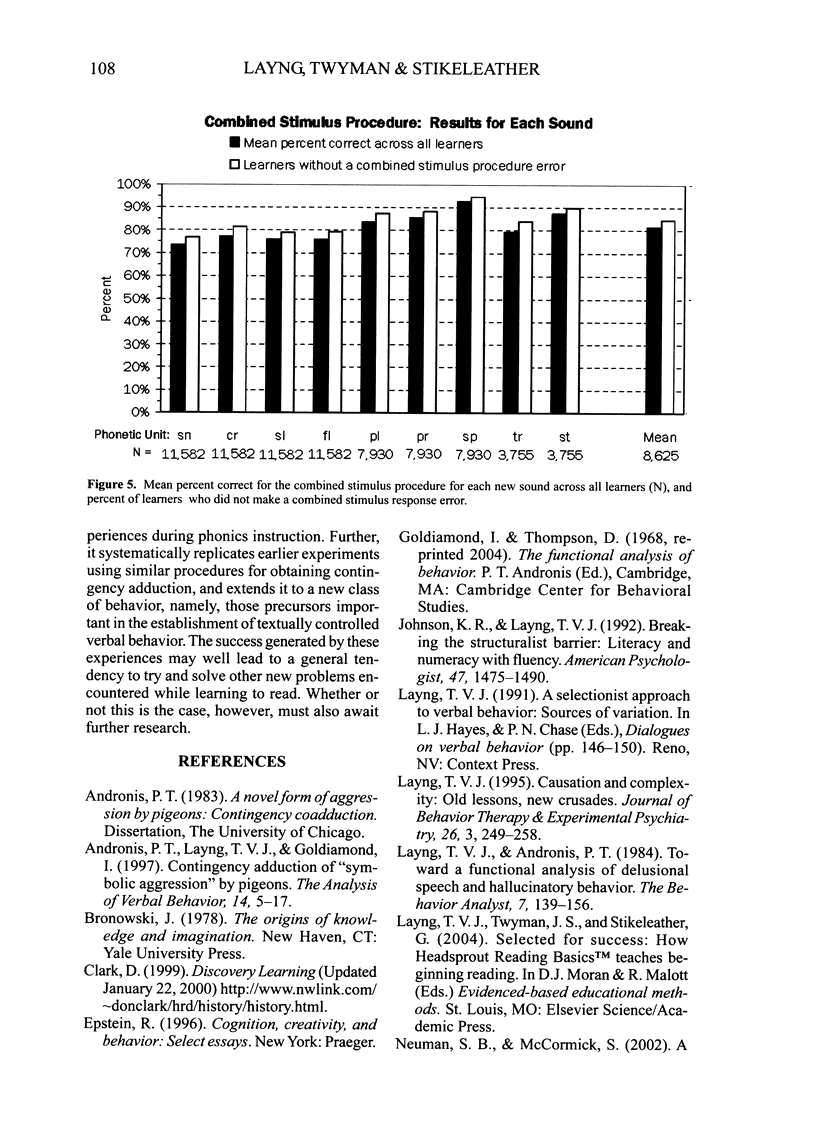
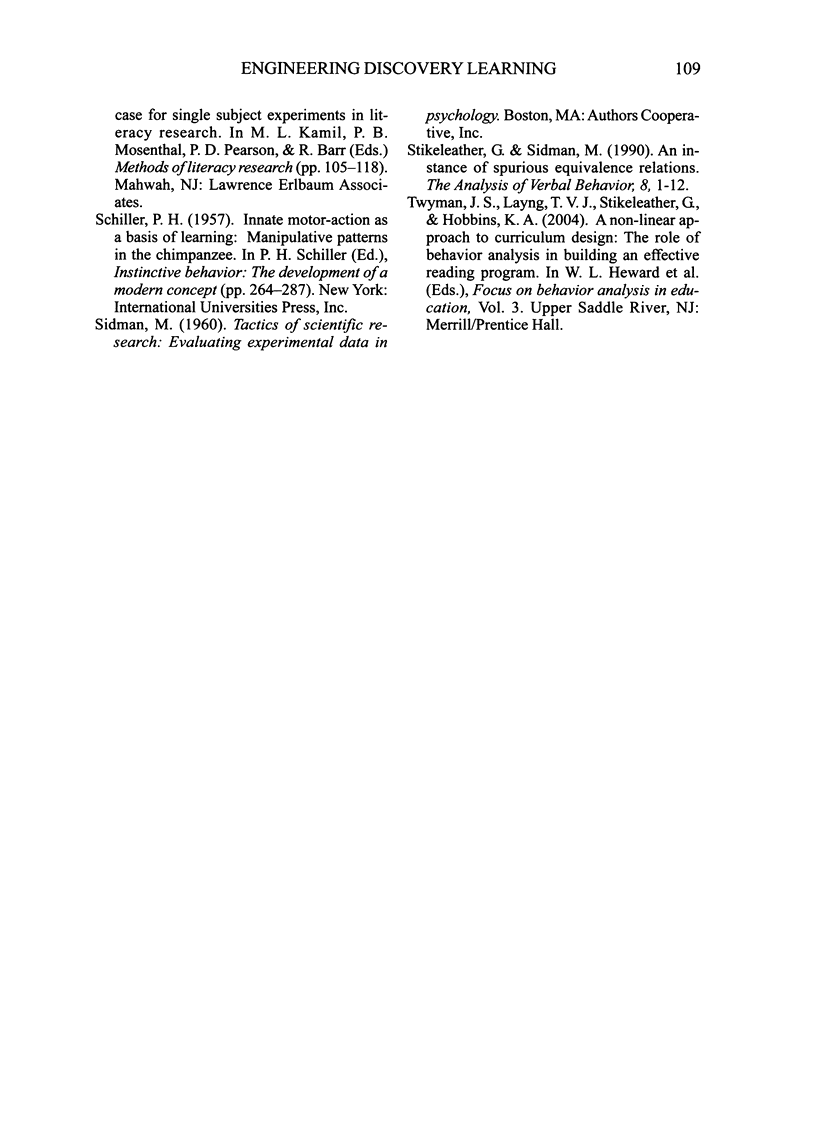
Selected References
These references are in PubMed. This may not be the complete list of references from this article.
- Johnson K. R., Layng T. V. Breaking the structuralist barrier. Literacy and numeracy with fluency. Am Psychol. 1992 Nov;47(11):1475–1490. doi: 10.1037//0003-066x.47.11.1475. [DOI] [PubMed] [Google Scholar]
- Layng T. V., Andronis P. T. Toward a functional analysis of delusional speech and hallucinatory behavior. Behav Anal. 1984 Fall;7(2):139–156. doi: 10.1007/BF03391897. [DOI] [PMC free article] [PubMed] [Google Scholar]
- Layng T. V. Causation and complexity: old lessons, new crusades. J Behav Ther Exp Psychiatry. 1995 Sep;26(3):249–258. doi: 10.1016/0005-7916(95)00025-u. [DOI] [PubMed] [Google Scholar]


